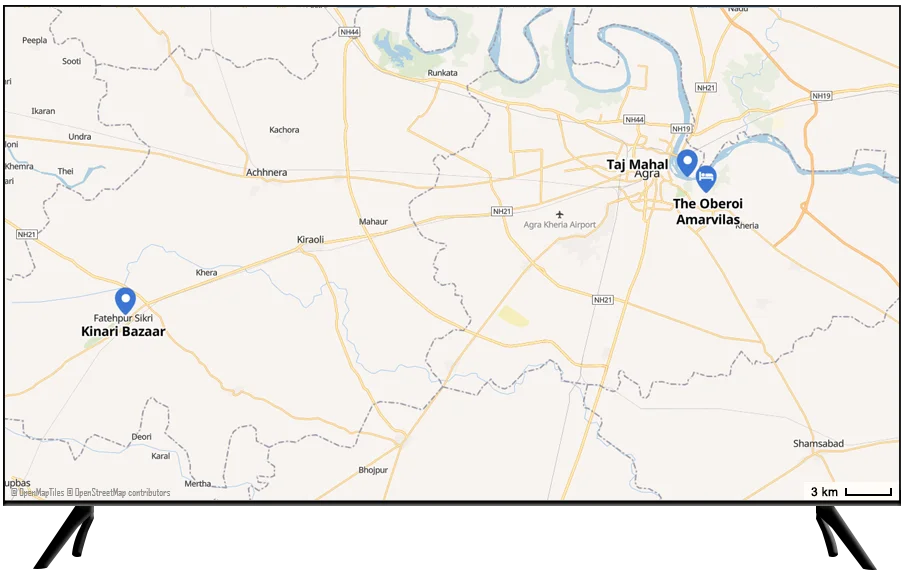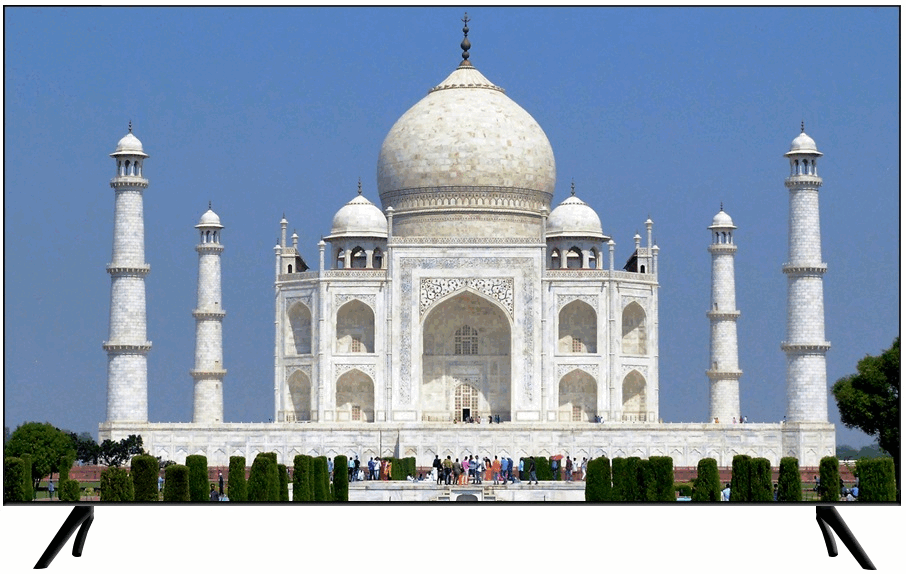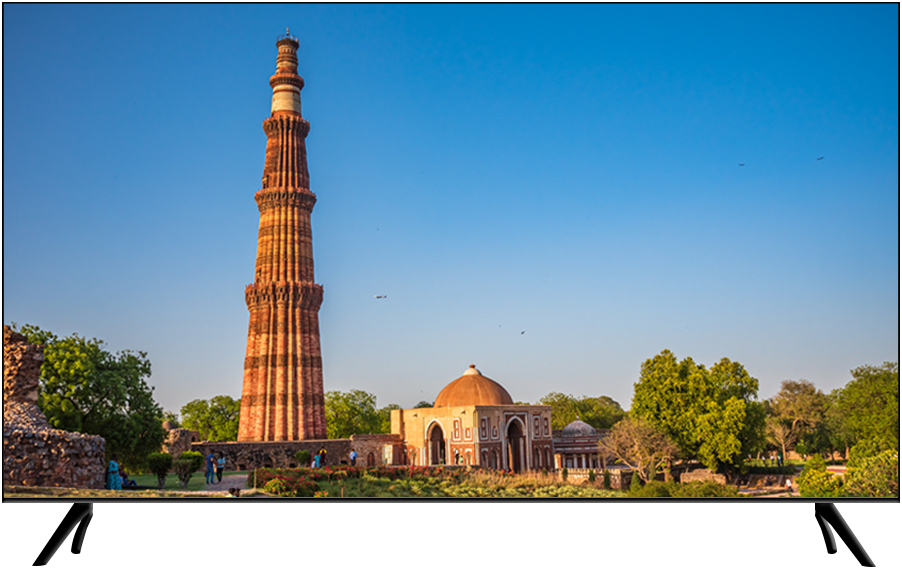



Day 7. Agra
Overnight – The Oberoi Amarvilas
Enjoy a sunrise visit to one of the Seven Wonders of the World, the incomparable Taj Mahal. Morning is the best time to experience it during most of the year, except for some years during which morning fog in late December and most of January can affect photography. Since it is more expensive for Indian tourists to enter at this early hour the massive monument and its surrounding Mughal gardens have a lot fewer visitors than the rest of the day. The world’s greatest monument dedicated to love is obviously a UNESCO World Heritage Site. The Taj Mahal was completed by Emperor Shah Jahan in 1653 A.D. as a memorial to his beloved queen Mumtaz Mahal. This spectacular white marble mausoleum was created by about
22,000 skilled craftsmen, many of whom were brought here from far away nations, and it took twenty two years to complete. As the rising sun’s rays illuminate the precious stones inlaid in the marble they will gleam momentarily and change colors. When you experience the Taj Mahal with an Easy Tours’ Connoisseur Guide who shares unique insights into its innumerable facets, some of their passion for this masterpiece may rub off on you. Return to your resort in time for breakfast.
Enjoy the amazing facilities and views of your resort for a couple of hours, or you can join your guide for a walk-through Agra’s ancient Kinari Bazaar. Lunch can be a lavish buffet featuring both Indian and Western options at the popular Taj Bano restaurant in the upscale ITC Mughal Hotel – ITC Hotels in India are recognized for the excellence of their cuisine, but there are other alternatives that you can discuss with your expert guide. After lunch you will head to the first red sandstone fort of North India, the Agra Fort, another UNESCO World Heritage Site. It was built in 1565 by India’s greatest Mughal ruler, Emperor Akbar. Its royal audience halls, immense stone courtyards, marble mosque and the private royal chambers give us a glimpse of the grandeur of the Mughal Empire. There are unique views of the Taj Mahal from a section of the fort, including the room where Emperor Shah Jahan’s infamous son and successor, Aurangzeb, imprisoned his father during the latter years of his life.
When the Taj Mahal closes right after sunset you will enjoy the short walk to your resort which is just a few hundred yards away.
Enjoy a sunrise visit to one of the Seven Wonders of the World, the incomparable Taj Mahal. Morning is the best time to experience it during most of the year, except for some years during which morning fog in late December and most of January can affect photography. Since it is more expensive for Indian tourists to enter at this early hour the massive monument and its surrounding Mughal gardens have a lot fewer visitors than the rest of the day. The world’s greatest monument dedicated to love is obviously a UNESCO World Heritage Site. The Taj Mahal was completed by Emperor Shah Jahan in 1653 A.D. as a memorial to his beloved queen Mumtaz Mahal. This spectacular white marble mausoleum was created by about
22,000 skilled craftsmen, many of whom were brought here from far away nations, and it took twenty two years to complete. As the rising sun’s rays illuminate the precious stones inlaid in the marble they will gleam momentarily and change colors. When you experience the Taj Mahal with an Easy Tours’ Connoisseur Guide who shares unique insights into its innumerable facets, some of their passion for this masterpiece may rub off on you. Return to your resort in time for breakfast.
Enjoy the amazing facilities and views of your resort for a couple of hours, or you can join your guide for a walk-through Agra’s ancient Kinari Bazaar. Lunch can be a lavish buffet featuring both Indian and Western options at the popular Taj Bano restaurant in the upscale ITC Mughal Hotel – ITC Hotels in India are recognized for the excellence of their cuisine, but there are other alternatives that you can discuss with your expert guide. After lunch you will head to the first red sandstone fort of North India, the Agra Fort, another UNESCO World Heritage Site. It was built in 1565 by India’s greatest Mughal ruler, Emperor Akbar. Its royal audience halls, immense stone courtyards, marble mosque and the private royal chambers give us a glimpse of the grandeur of the Mughal Empire. There are unique views of the Taj Mahal from a section of the fort, including the room where Emperor Shah Jahan’s infamous son and successor, Aurangzeb, imprisoned his father during the latter years of his life.
When the Taj Mahal closes right after sunset you will enjoy the short walk to your resort which is just a few hundred yards away.

